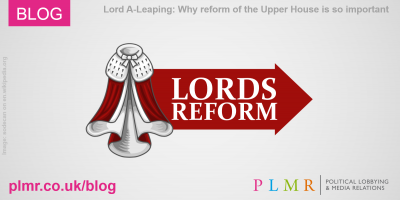The demand for House of Lords reform has been ongoing for generations – in fact, when it comes to legislative change, it is one of the most hotly debated topics. There are many questions that arise from this – should members be elected, remain appointed, or perhaps a combination of the two? Or more controversially, should it be scrapped altogether?
There has, of course, already been some reform of the upper chamber through the House of Lords Act 1999. This made the Lords considerably more legitimate with the removal of all but 92 hereditary peers. Whilst the Conservatives used to be dominant, there is now more balance: there are 227 Tory members and 212 for Labour. When hereditary members die or leave, their replacement is elected internally via a secret AV (alternative vote) ballot.
But one key issue is that regular appointments have led to the House swelling. As of December 2014, there were 847 peers – and the chamber can only hold 400 members at any one time. It has become one of the largest legislative bodies in the world, second only to the National People’s Congress of China (which has almost 3,000 members). Moreover, the current system means the amount of people sitting in the chamber keeps on rising: in August 2013, 30 members were appointed, with notable members including Doreen Lawrence and the Green Party politician Jenny Jones. Similarly, in August 2014, 22 more peers were inducted, including businesswoman Karren Brady and former Marks and Spencer boss Sir Stuart Rose. This is simply unsustainable and any reform should tackle the ever-growing number.
Some also argue that despite its ever increasing membership, the upper house is too weak. Thanks to the Parliament Acts of 1911 and 1949, it can only delay, rather than block, government legislation. A good example of this is the Transparency of Lobbying Act (2014), which was intended to limit the amount outside groups can spend in elections. The Lords made three key amendments to this, including a system which would make the Act less of a burden for charities. However, the Commons used their powers to not only overturn this one seemingly important change, but all three amendments that the peers suggested. So it seems to be that the Lords is not as important as it could be because of its limited abilities. Reform is therefore imperative if there is to be a genuine counter-balance to the Commons’ power. To ensure greater power for the Lords, some of the conventions should be abandoned, such as the Salisbury Convention, which means the Upper House cannot block the introduction of any pledge made in a party manifesto, and the rule which dictates that the Upper House cannot intervene on any financial policy of the Government, for example tax rises or cuts, or spending decisions.
Now to arguably the biggest questions: Appointed or elected members or a hybrid? And should the House of Lords be abolished? I believe that if the number of peers is tackled, and the Upper House is given greater powers, then it is right to retain an entirely appointed system. Having an elected chamber would remove the vital expertise that members bring: Lord Winston, who pioneered IVF, would not be able to talk directly on health; Lord Dannatt, the former Chief of Staff, would not be able to contribute to the House’s debates on military issues. Having two elected bodies would also create a parliamentary stalemate, which is much, much worse than the ‘ping-pong’ that so often occurs.
In my view, abolition is unthinkable – the Lords, properly constituted, provide invaluable checks on the Commons.
Further reform has to occur – there are no two ways about it. It is fundamental to increase the effectiveness of a body that is so central to the legislative process. The laws which govern us and affect Britain’s future are being created by a system that is flawed, and even unrepresentative. And that is something which is grossly wrong.




